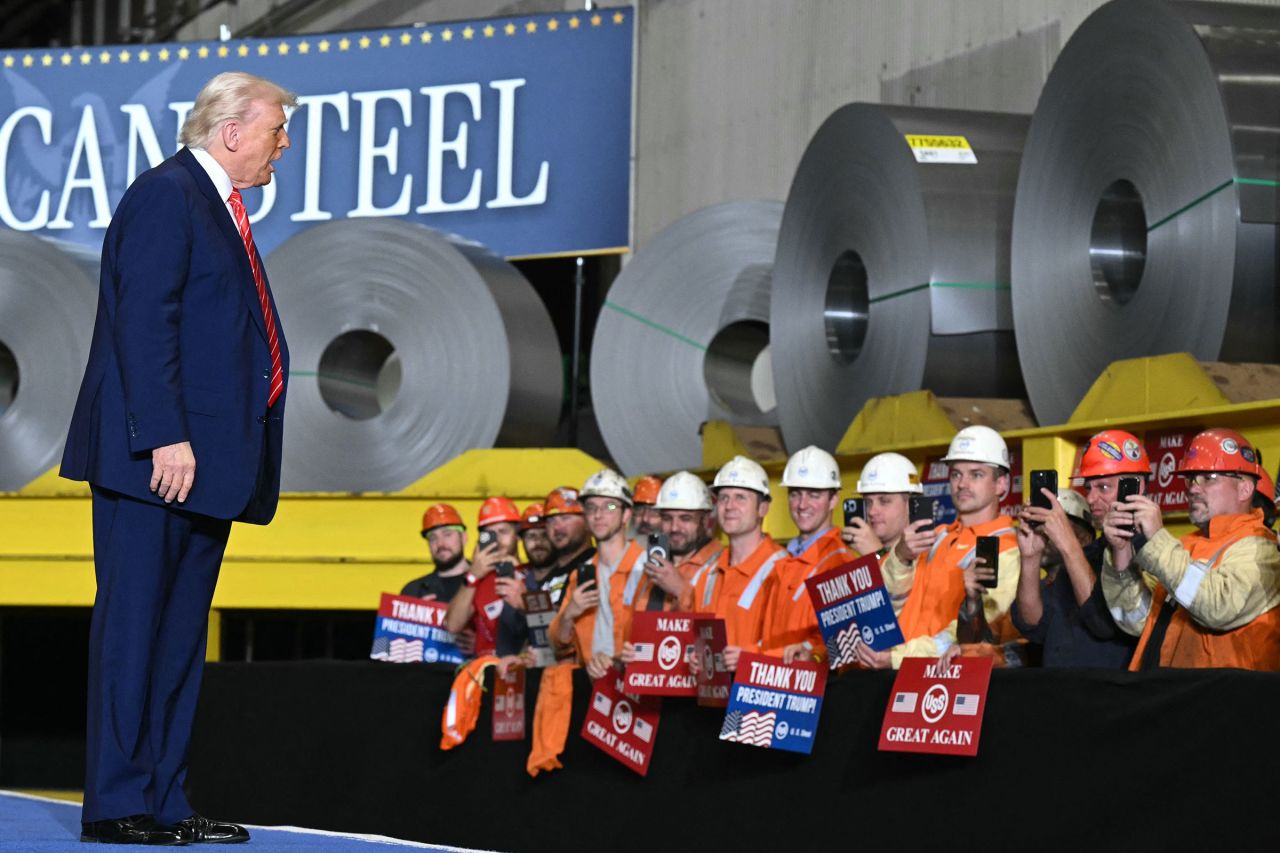President Donald Trump made the latest move in his ever-evolving trade war Friday, announcing at a Pennsylvania steel plant that he plans to double tariffs on the alloy.
If you’re trying to make sense of last week’s tariff news, start here:
• Trump told a crowd at the US Steel facility outside Pittsburgh that he plans to jack up tariffs on the material to 50%. Trump said he was considering a 40% tariff, but industry executives told him to go even higher.
Trump on March 12 imposed sweeping 25% tariffs on all steel and aluminum imports, which was met with immediate retaliation from Canada and the European Union — and dismay from America’s auto industry.
More tariffs may give the moribund US steel business a much-needed boost, but they could also raise prices on a key component for construction companies and manufacturers.
• The steel announcement came on the same day Trump vented frustration online about trade terms with China, claiming in a Truth Social post that China “HAS TOTALLY VIOLATED ITS AGREEMENT WITH US,” and implying he would no longer play “Mr. NICE GUY.”
Stephen Miller, the White House deputy chief of staff for policy, told reporters the administration is preparing new trade actions to target China, according to Reuters.
• A federal court blocked many of Trump’s tariffs on Wednesday, but an appeals court quickly paused that ruling the next day. The legal battle — which centers on Trump’s use of emergency powers to levy tariffs — will continue next month.
The whiplash rulings underscore why, even when there’s news of tariffs easing, retailers and ports cannot immediately adjust.
• Overall market reaction to the latest twists and turns has been relatively muted. Wall Street has started to bet that if Trump makes a trade war threat, he will eventually back down. Investors who sold at the start of May missed out on a historically strong month for markets.
• Observers have coined a term for that assumption the president will eventually back down from trade threats: “TACO,” as in, “Trump Always Chickens Out.”
Trump was caught off guard and angered by a reporter’s question about the term this week, according to a senior White House official.






















